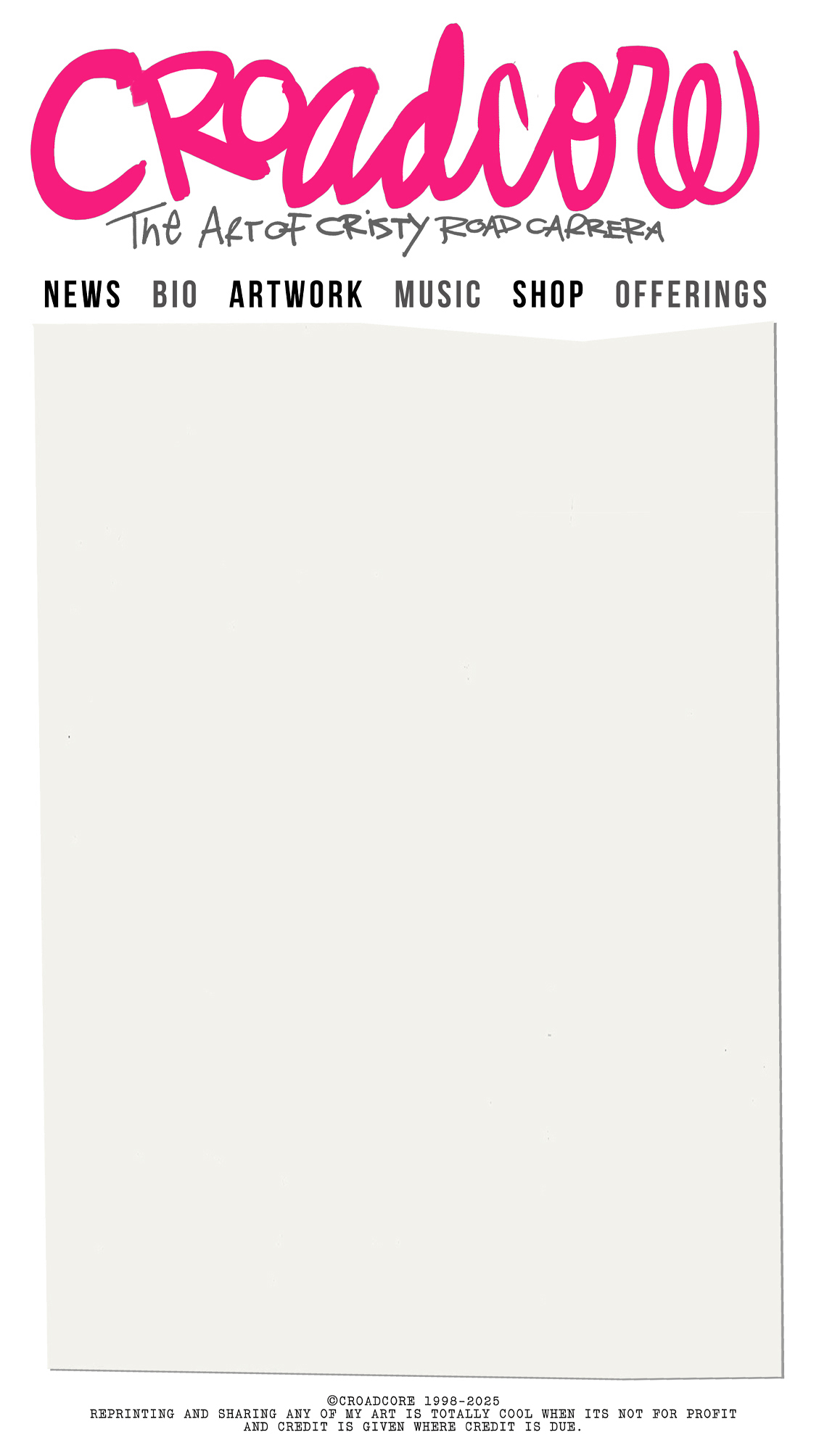
"FOR YOU, I THINK" From Left Turn Magazine
Distance Makes The Heart Grow Sick: A Book Of Postcards is not so much a book, but a graphic toolkit-and a passionate call for possibilities. Indeed, when I went looking for a copy at the radical bluestockings store in New York, I was directed not to the graphic novel or queer sections ( or any of the others that could have been its home), but to a small DIY section in the middle of books on theory and history. The collection of postcards, bound into a book without narrative, serves as a retrospective of a punk artist who many of us probably know in passing, having seen her work on a poster for a show, or in a zine in a friend's bathroom, or even on the cover of this magazine. That utility is what Road's art is all about. Aside from a short introduction-a letter from the road- the book's pages are all perforated images, screaming to be ripped apart and copied onto flyers, taped into journals, and mailed to friends, exes, families in distant places.
The book is divided into two sections: "Love, My Brain" and "For You, I Think"; the former being more personal examples of the artist's work, and the latter consisting mostly of commissions for various organizations, publications, and events. In truth, the sections are not all that different, as both contain images that are formally and compositionally similar (save for added context and color among the commissioned work), and exhibit consistent political and cultural commitments to punk, queer, feminist, activist, and Cuban/Latina communities. All of the postcards reflect Road's uniquely graphic style that begins with strong, bold lines, and quickly yields to thinner strokes and washes, revealing detail, movement, and emotional subtlety. On the one hand, there is a sense of speed and dexterity to her work, as if they could be drawn in an instant, photocopied, and plastered all over town; yet on the other, they contain a spirit of privacy and need for quiet consideration. Both her form and subject matter suggest these are images that belong in public space-locations where they are both welcome and not, which provoke consideration and outrage- and that can provide further resources for organizing and cultural work. Yet, they are also documents of time and place that deserve to be examined carefully, alone and in community.
Given the time to peruse the book's pages, I was struck by Road's careful attention to bodies and faces, and the embellishments-tattoos, piercings, clothes, sex toys, and other props- that many of us take on to add new meaning, politics, and attitude to our daily presentation and performance. Nearly all of her images include people- whether in the form of portraits, imaginations, or scenes from activism and everyday life- resulting in a feeling of flipping through someone's public photo album, a mix of posed and candid shots. There are figures that stare the viewer in the eyes, offering an invitation for conversation, or a challenge to fight (ie., "Adulthood Makes Us Capable of Murder"); there are others that ignore the viewer altogether, immersed in their moment of fucking, or reading, or enjoying a cigarette.
-Harris Kornstein , Left Turn Magazine, Jan/Feb 2008.
LEFT TURN MAGAZINE
